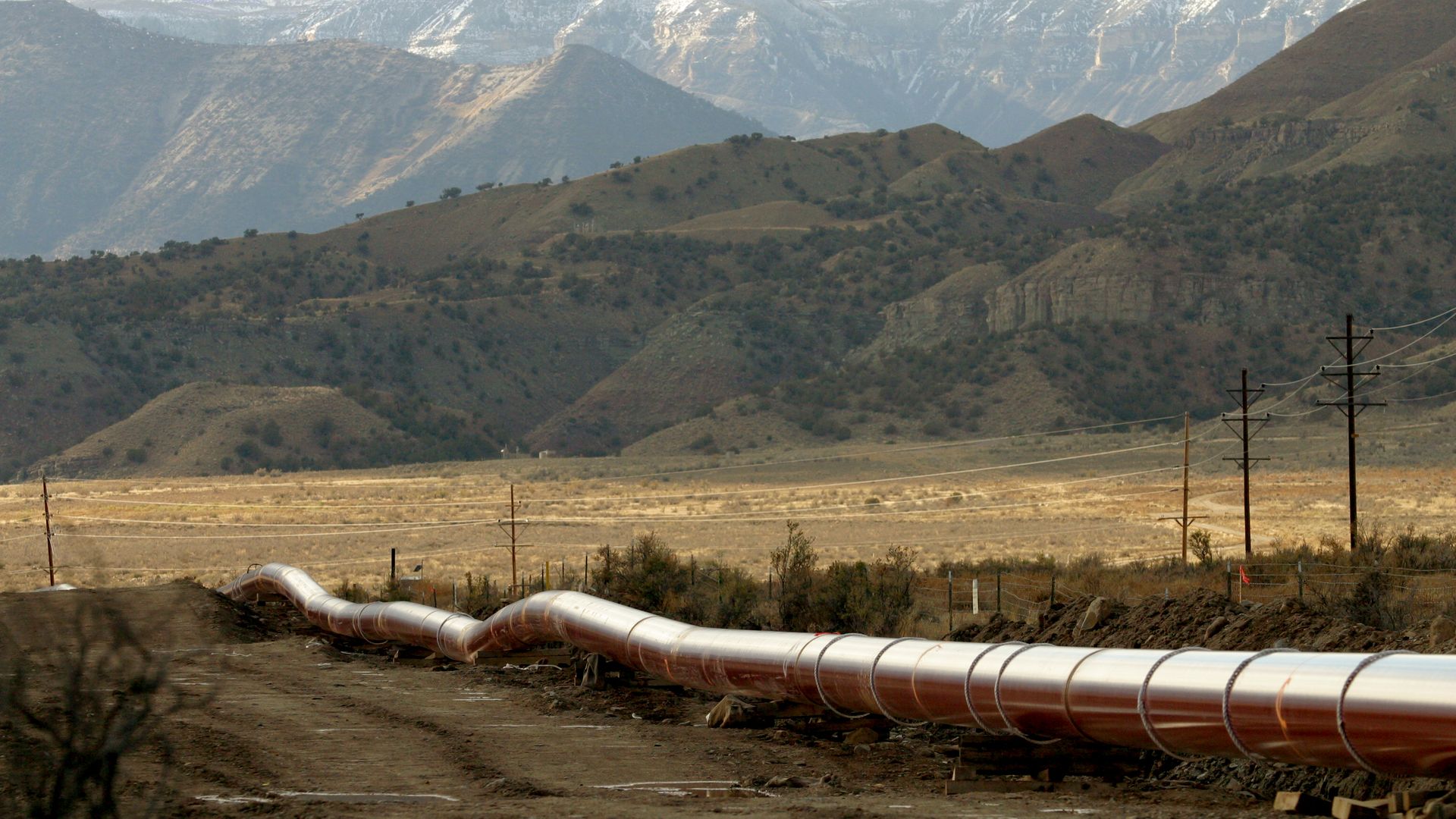Updated Jun 11, 2018 - Energy & Climate
Expert VoicesCybersecurity threats to U.S. gas pipelines call for stricter oversight
Add Axios as your preferred source to
see more of our stories on Google.

A natural gas pipeline in Colorado. Photo: Jerry Cleveland/The Denver Post via Getty Images

